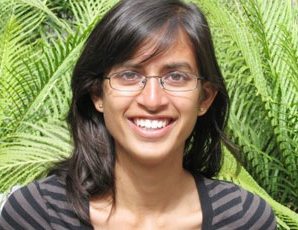 Washington, Jul 9: US President Barack Obama has nominated an Indian-American woman for the key post of Assistant Secretary of State for South and Central Asia.
Washington, Jul 9: US President Barack Obama has nominated an Indian-American woman for the key post of Assistant Secretary of State for South and Central Asia.
Subject to confirmation by the Senate, Nisha Desai Biswal, who is currently the Assistant Administrator for Asia at the US Agency for International Development (USAID), will replace incumbent Robert Blake.
Biswal's nomination by Obama yesterday came along with announcements for seven other senior administration level positions.
"It gives me great confidence that such dedicated and capable individuals have agreed to join this Administration to serve the American people. I look forward to working with them in the months and years to come," Obama said in a statement.
Biswal, who received a BA degree from the University of Virginia, has been the Assistant Administrator for Asia at the USAID, since September 2010.
Although Afghanistan and Pakistan come under the South and Central Asia Bureau of the State Department, they, however, are handled by the Special US Representatives for Afghanistan and Pakistan, the designation currently held by Jim Dobbins.
From 2005 to 2010, she was the Majority Clerk for the State Department and Foreign Operations Subcommittee on the Committee on Appropriations in the US House of Representatives. From 2002 to 2005, she served as the Policy and Advocacy Director at InterAction.
Previously, Biswal had served as the professional staff of the US House of Representatives International Relations Committee from 1999 to 2002.
She served at USAID from 1995 to 1999 in a number of capacities including Special Assistant to the Administrator, Chief of Staff in the Management Bureau and in the Office of US Foreign Disaster Assistance, and the Office of Transition Initiatives.
Biswal worked at the American Red Cross from 1993 to 1995 in the Washington DC headquarters, and as an overseas delegate in Armenia, Georgia, and Azerbaijan.
She is also a member of the Congressional-Executive Commission on the People's Republic of China since March 2011.
"I would like to introduce my husband and soul mate, Subrat, and our two spirited daughters, Safya and Kaya, who inspire and challenge me every day.
My parents, Kanu and Lata Desai, my in-laws Nilambar and Anu Biswal and my brother, Pinank Desai and his family are also here," she had earlier said.
"As first generation immigrants, our parents journeyed far from rural India to pursue the American Dream and a better life for their children. We are grateful for their continued sacrifices on our behalf," Biswal had said.





Comments
Add new comment